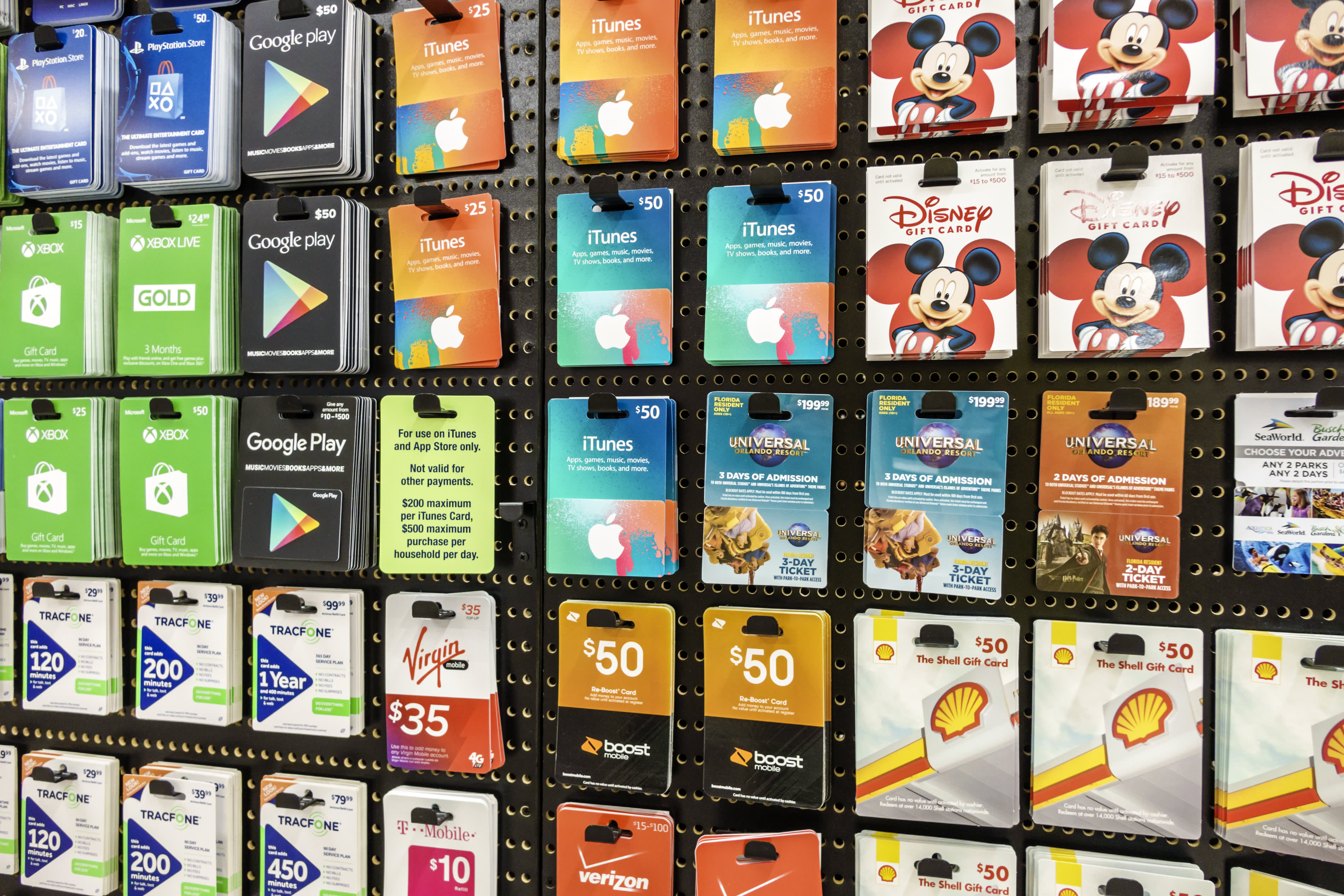Americans love gift cards. And the U.S. is the world’s biggest market — by a long shot.
The plastic cash substitute has been the most popular holiday item on shoppers’ lists for 13 years in a row.
In 2019 alone, U.S. consumers loaded up on gift cards from brands like Starbucks, Amazon and Home Depot to the tune of about $98 billion — a 90% increase from 2005.
But a lot of that money is winding up at the bottom of dresser drawers and forgotten in wallets.
Gift cards are usually spent within the first year from the date of purchase. But if you’re one of those who has sat on a gift card for longer than 12 months, you’re not alone.
About 2% to 4% of gift card money goes unused every year. That adds up to between $2 billion and $4 billion — just in the U.S., according to Mercator Advisory Group.
“That’s a lot of money,” said Erin Wood, chair of the Retail Gift Card Association. “And so across America, at any given time, there could be unclaimed, unused balances on gift cards that equate into the billions of dollars.”
A 2009 federal consumer protection law stipulated that most gift cards cannot expire within five years from the date they were activated and placed limits on inactivity fees.
And for consumers who prefer having cash on hand instead of shopping, online sites like Cardpool and Raise sell unwanted gift cards. The resale value generally ranges from below 70% to more than 90% depending on the popularity of the card.
But retailers and some state governments can claim a portion of that money, too.
Use it or lose it?
Leftover money in the gift card industry is called breakage.
Companies use a complex set of guidelines set by the Federal Accounting Standards Board to determine what amount of breakage a company can claim as revenue. If a store like Home Depot sells $1,000 worth of gift cards and a customer redeems $900, after a certain amount of time, the store can claim a portion of the remaining money as breakage revenue, experts say.
In 2019, Starbucks had breakage revenue of more than $140 million, department store Nordstrom had $17 million and The Cheesecake Factory got $8 million.
However, before a company can claim that money, retailers in some states have a legal obligation to return it to the buyer.
Once that threshold is met, unspent gift card money doesn’t always go back to the retailer. Some of that cash actually can be diverted to state governments.
“One would think it would all go to the retailer, but it doesn’t,” said C. Sue Brown, director of the prepaid advisory service at the Mercator Advisory Group. “Portions of that, a large portion of that, will go back to the state that the company is incorporated in.”
Watch this video to find out more about what happens to gift card money that hasn’t been spent.
Watch more:
Why US hospitals are closing
What airlines are doing to clean their planes
SIGN UP: Money 101 is an 8-week learning course to financial freedom, delivered weekly to your inbox.
CHECK OUT: An NFL player walked away from a $925,000 salary to pursue his ‘passion’ – here’s what he’s doing now via Grow with Acorns+CNBC.
Disclosure: NBCUniversal and Comcast Ventures are investors in Acorns.
